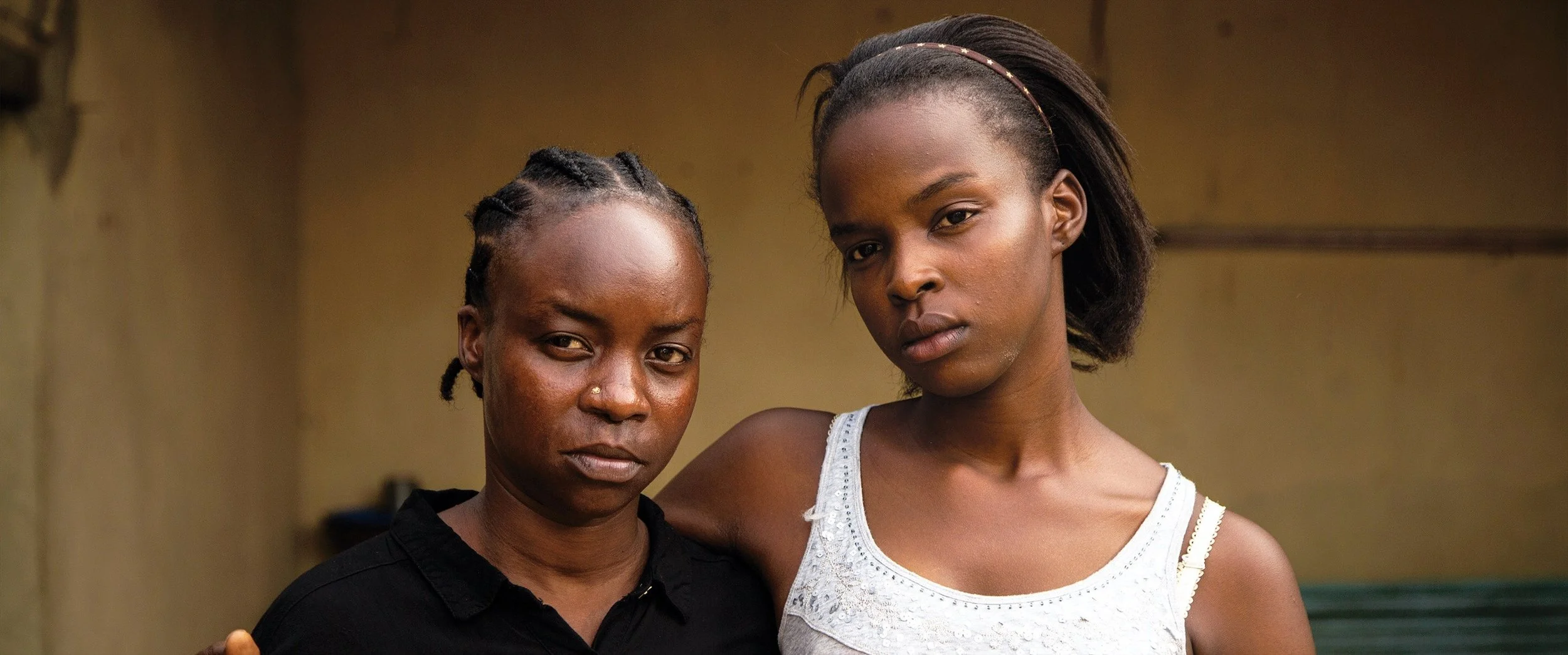LINGUI, THE SACRED BONDS
Directing: A
Acting: A
Writing: A-
Cinematography: A-
Editing: A-
Movies like Lingui, the Sacred Bonds have a deep, unique international value, just in terms of encapsulating a local area and culture—even on an unusually micro level, right down to a single neighborhood, in this case on the outskirts of N'Djamena, the capital and largest city in Chad. This is the story of “the sacred bonds” of family, in this instance between a mother, Amina (Achouackh Abakar Souleymane), and her 15-year-old daughter, Maria (Rihane Khalil Alio). Amina is a devout Muslim, as is everyone else in her community, but her convictions are put to the test when Maria is revealed to be pregnant and cannot bear to have the child. This is the story of a mother taking increasingly desperate measures to get her daughter an abortion.
It should be noted that it’s naive to think only places as “exotic” (to Americans) as Chad make such things so difficult. I am reminded of the excellent and under-watched 2020 film, Never Rarely Sometimes Always, about a teenage girl and her best friend traveling alone together from Pennsyvania to New York so she can get an abortion without her parents’ consent. That film is heartbreaking in its own right, but it does also focus on white Americans, and it says nothing about how the United States makes things far harder yet for Black people in the same situation.
In Lingui, the characters aren’t just all Black, but they are literally African, and Muslim as well. To say this film is packed with layered nuance and subtext would be an understatement. There were scenes in which I knew there was subtext I was missing, some of it connected to Chad’s French colonial past. (Most of the film is spoken in French.) There is only one scene in the entire film in which we see white characters, and they are just two young white girls at the birthday party of Maria’s friend. Even there, they are merely extras.
Lingui, the Sacred Bonds read, to me at least, as a deeply feminist text. Usually I really hope a film like this is written and directed by a woman, but in this context, given the evident culture on display in the film, I’m rather impressed that it was written and directed by a man, by the name of Mahamat-Saleh Haroun—himself a native of Chad. I know truly nothing about what kind of film industry exists in that country, but Haroun elicits incredible performances from his two leads; his cinematographer Mathieu Giombini—a white Frenchman—has a natural eye for eliciting a specific setting; and this was Chad’s official submission for the Academy Award for Best International Feature. Unfortunately, it did not secure a nomination, although a strong case could be made that it should have. It’s far more deserving than The Hand of God, in any case.
The story, in retrospect, is more about the emotional journey of Amina, the mother, than that of Maria, the daughter. The daughter knows who she is and what she wants from the start, and doesn’t change beyond obvious effects of the trauma surrounding however she got pregnant. It’s Amina who is a different person by the end of the story than she was at the start, although her deep love for and fierce protection of her daughter is never in doubt. Lingui is also a great movie about a mother-daughter bond, the kind that gets more healthy as the story goes on.
I do kind of wish we didn’t have to find out who the father of Maria’s unborn child is. For most of the film, it’s something we do not know, and I would have preferred it to stay that way. The obvious trauma makes it easier for many to empathize with her situation, but objectively speaking, if Maria needs, or even wants, an abortion, the reason for it doesn’t matter. It’s no one else’s fucking business but hers, and perhaps her mother’s since Maria is still a minor. The revelation of this detail is ultimately a plot device, but, I suppose I should hesitate to jump to judgment, given how little I know about Chad’s government and culture (which is, basically, nothing at all, beyond what’s revealed by this film). Presumably the primary target audience for this film is other Chadians, after all.
I cannot stress enough, however, that this film is perfect for audiences the world over, as it doesn’t matter the background of the mother(s) in question, every woman in this situation deserves empathy and understanding, and more importantly, the autonomy to make her own decisions about it. Lingui touches on other barbaric practices of the region, most notably the truly disturbing practice of female circumcision, but at least it’s contextualized here with a small dose of hope. This gets to the layered themes already mentioned, and makes the film that much more impressive to process and contemplate. This is a movie with so much food for thought, you’ll be chewing on a lot of long after the credits roll.
A fierce bond between mother and daughter.
Overall: A-

